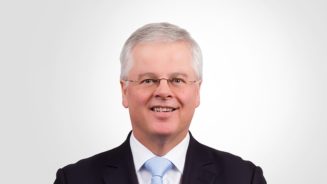The China factor
On the other hand, Pangaro reveals the fund is currently underweight China. “We expect China to continue managing the slowdown in their economy and the transition to a more services-based economy.
“Our underweight position in China is currently the largest country bet in the portfolio. However, there are still many pockets of growth within China where we can find interesting investment ideas.”
Pangaro’s view on China is biased towards companies with exposure to the growth in domestic demand and to rising disposable income, such as the internet, consumer products, clean energy and insurance sectors.
The fund’s largest overweight positions include Tencent, the dominant social platform on both computer and mobile, and Baidu, the country’s leading internet search engine operator.
Pangaro has also placed significant bets on a few high-quality consumer companies that have strong management teams and a record of good product innovation. He likes Hengan International, a leading consumer paper company, and China Mengniu Dairy.
“These companies are segment leaders. They have strong runways for growth as they add additional services and keep users within their ecosystems. Valuations are not excessive given the opportunities.”
Alternatively, he currently has no holdings in any of the Chinese banks. He says: “The increase in the level of corporate debt within China and the evergreening of loans within the banking sector remain issues to monitor.”
Money in the bank
While not holding any of China’s banks, Pangaro does like financial stocks in the rest of the emerging markets.
Financials is the second-largest sector weighting in the portfolio, though he points out that the positions vary widely on a country-by-country basis.
“We favour banking sectors where there is underlying scope for growth, often where the private sector is gaining share at the expense of a state-owned banking system.”
India is one example of this trend, with several private sector banks that have strong balance sheets taking market share in the retail lending business.
The Indian government recently announced a large-scale demonetisation process in a forthright bid to tackle tax avoidance and corruption.
“Although disruptive in the short term, we expect the longer-term impact to be positive and for the banking sector to benefit from the increased number of transactions captured within the financial system,” Pangaro says.
Elsewhere, he has accumulated a big position in South Korea’s Samsung. “We built up our large weighting in Samsung during the second half of 2016. Our thesis is based on a combination of a better outlook for the memory cycle and profitability over the coming two years, plus signs of normalisation of margins in the mobile segment as competition eases.”
Pangaro believes that the well-publicised problems with the battery of the Samsung Note 7 smartphone were dealt with relatively swiftly by the company and costs have been manageable.
“Shareholder return is moving in a fav-
ourable direction, with increasing cash payouts to investors and the potential for corporate restructuring.”
Potential targets
In general, Pangaro favours stock selection that targets high-quality companies with proven management, sustainable growth potential and solid fundamentals.
“We focus on the potential for the long-term growth runway of a company and consider valuations in the context of the full investment horizon, taking advantage of short-term anomalies to add to existing holdings or purchase new names if the time is right.”
Company analysis typically focuses on franchise strength, management team quality, free cashflow and financing structure. While the majority of added value is expected to be driven by stock-selection decisions, Pangaro believes analysing and understanding the microeconomic and macroeconomic environment is essential to avoid the periodic economic downturns common in emerging markets.
After a 23-year history of investing in emerging markets, one thing he has learnt is the importance of being a contrarian. “Being able to focus on the long-term view and doing your own research, while markets are panicking about short-term results or issues, often provides very attractive opportunities for investment.”
In terms of the clouds on Pangaro’s largely positive outlook for the emerging markets sector, as with many markets this year, a big one is the Trump factor. “Policy risk from the US is something to continue watching for this year,” he says.
The new Trump administration is likely to pursue a pro-growth agenda that will include lower taxes, reduced regulation and spending on infrastructure, which should be good for emerging markets,
Pangaro notes this may be countered by the potential policies that could hinder global trade, which is an important component of growth for these developing countries.
“While there remains a lot of uncertainty, our current view is that Trump will be pragmatic in his priorities and the policies he pursues, including the renegotiation of trade agreements,” Pangaro contends.
A worse-than-expected slowdown in China or a breakdown in its financial system would also be a risk, though he fully expects its policymakers have the tools to manage the economic transition and slowdown that is occurring there.




